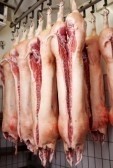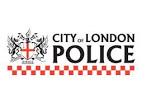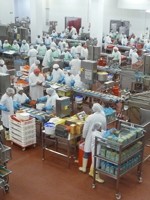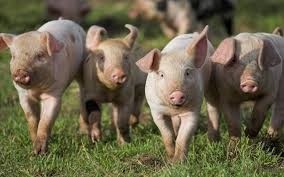Retailers are ‘laying foundations of next food scandal’: NPA

A number of retailers – which the NPA declines to name – are switching their pork, bacon and gammon lines being back to imported product because it is marginally cheaper, it claimed.
“Since the heat has come off the horsemeat scandal, we've started to see retailers sliding back from the strong British position they publicly adopted, and importing more European product,” said NPA general manager Dr Zoe Davies.
"Consumers expect supermarkets to deliver on their post-horsegate commitments to shorten their supply chains by buying safe food produced in Britain.”
The retailers concerned should think again, if they believe they can return to their old habits, warned Davies. “We won’t let this matter drop and neither will our friends in the National Farmers Union,” she added.
‘Won’t let this matter drop’
Britain imports about 60% of its pork and pork products. But the total could be cut if all retailers were genuinely committed to developing shorter supply chain deals with UK producers, argued the NPA.
The NPA refused to name the retailers concerned until it has had meetings with them to discover why they are reneging on their supply chain pledges.
The integrity of food supply chains will be under discussion at Food Manufacture’s Food Safety Conference to be staged at the National Motorcycle Museum near Birmingham on Thursday October 17.
More details of the one-day conference – to be chaired by Professor Colin Dennis – are available here.
Meanwhile, earlier this month the NPA called for food companies to ban all imports from what it termed “medieval farms”.
‘Medieval farms’
Half of EU countries have failed to police the ban on sow stalls and tethers introduced at the beginning of this year, it claimed.
EC data showed that only 13 member countries fully complied with the legislation. Those were: Austria, Bulgaria, Czech Republic, Estonia, Lithuania, Luxembourg, Latvia, Malta, Romania, Slovakia, Spain, Sweden, and the UK.
The EU has started infringement in February proceedings against nine countries: Belgium, Cyprus, Denmark, France, Germany, Greece, Ireland, Poland and Portugal.
The Netherlands, Italy, Hungary, Finland, and Slovenia are still being investigated.
Sow stalls have been banned in the UK since 1999.
“Sow stalls are narrow cages,” said Davies. “They make life easier for pig farmers, but they are medieval in the eyes of British consumers because the sows spend most of their lives being able to do little more than stand up and lie down.”
About 100 companies and brands have pledged total traceability for the imported pork and pork products they sell. The list included most major retailers and leading foodservice companies such as: McDonald's, Costa, and Premier Inn.
















